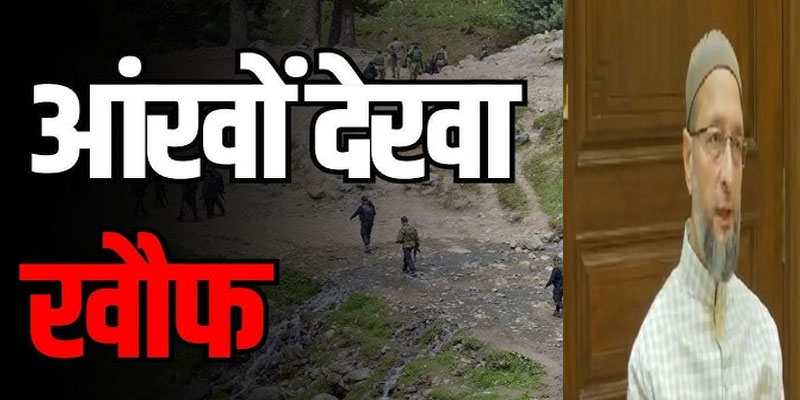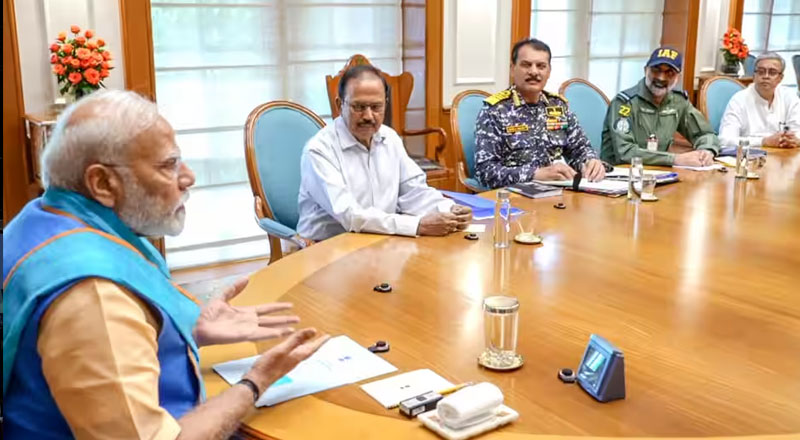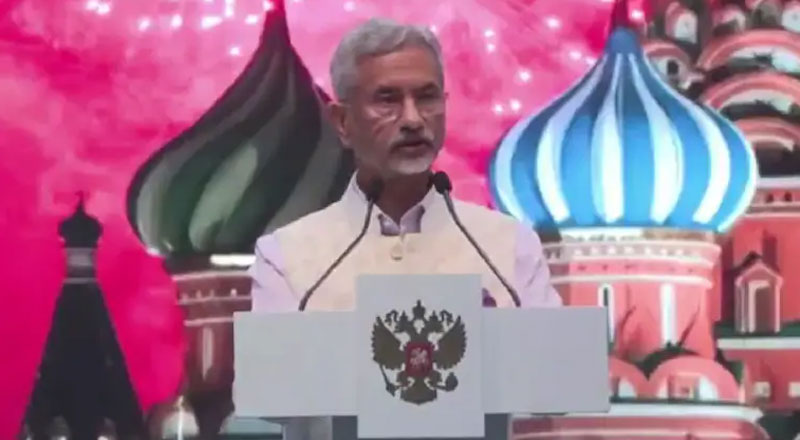Renewed Attack on Pakistan: Owaisi’s Scathing Remarks in Maharashtra
Addressing a public meeting in Maharashtra’s Prabhani district, AIMIM president and Hyderabad MP Asaduddin Owaisi launched a fierce attack on Pakistan, condemning it for the recent terror strike at Pahalgam. Speaking while opposing the Waqf (Amendment) Act, Owaisi said, “Pakistan is not just half an hour behind India, it is half a century behind. Your entire country’s budget doesn’t even match India’s military budget.”
In his sharp criticism, he ridiculed Pakistan’s nuclear threats, pointing out that no country would stay silent if its citizens were killed in cold blood. Referring to the Pahalgam attack, he denounced the terrorists for asking victims’ religions before killing them, likening them to “successors of ISIS” and labeling them worse than the Khawarij — a notorious extremist sect.
Revisiting the Pahalgam Horror: The Incident That Sparked Outrage
On April 22, 26 people — including 25 tourists and a local Kashmiri — were killed in a brutal terror attack in Kashmir’s Baisaran Valley near Pahalgam. Survivors reported that gunmen selectively targeted based on religious identity, intensifying public fury across India.
This heinous act prompted widespread condemnation. Prime Minister Narendra Modi vowed severe retaliation, and India escalated diplomatic and security measures against Pakistan. Amid this charged atmosphere, Owaisi’s remarks reflected a national sentiment demanding not only justice but also strategic countermeasures against terror networks operating across the border.
Owaisi’s Longstanding Critique of Pakistan’s Policies
Owaisi has consistently been vocal about Pakistan’s alleged involvement in sponsoring terrorism. In the past, he has condemned Pakistan for harbouring terror groups and attempting to destabilize Kashmir. This time, he went a step further, suggesting that international law empowers India to impose a blockade on Pakistan’s Air Force and employ ethical hacking to disrupt Pakistan’s digital infrastructure.
Importantly, Owaisi also called on Prime Minister Modi to take strong economic actions to weaken Pakistan, implying that financial isolation could be as powerful as military deterrence.
Defending Kashmiris: A Call for National Unity
In a significant addition to his speech, Owaisi emphasized that Kashmiris are as integral to India as Kashmir itself. He condemned TV anchors and public voices that cast suspicion on Kashmiri civilians, reminding everyone that a Kashmiri laid down his life fighting the terrorists, and another carried an injured child for 40 minutes to safety.
This message was a much-needed counter to growing communal narratives, urging Indians to differentiate between the actions of terrorists and the common people of Kashmir who also suffered in the tragedy.
Criticism of the Waqf (Amendment) Act and Political Betrayals
Apart from attacking Pakistan, Owaisi used the platform to criticize political figures like Ajit Pawar, Nitish Kumar, Jayant Chaudhary, and N. Chandrababu Naidu for supporting the controversial Waqf (Amendment) Bill. Accusing them of betraying secular values and the Muslim community, he called for protests, including the symbolic ‘Batti Gul’ (Lights Off) demonstration scheduled for April 30.
Owaisi accused Nitish Kumar of “back-stabbing”, and claimed Chandrababu Naidu had jeopardized his son’s political career by siding with the bill’s passage.
Words of Fire, A Nation’s Choice
Asaduddin Owaisi’s fiery speech encapsulated the mood of a nation still reeling from Pahalgam’s horror — anger against Pakistan, sympathy for Kashmiris, and a call for stronger, smarter retaliation. His remarks remind India that while rage against terror is justified, it must be coupled with unity, strategy, and unwavering commitment to national values.
In moments of grief and rage, the true strength of a nation lies not just in how hard it strikes back — but in how firmly it stands together.
(With inputs from agencies)





